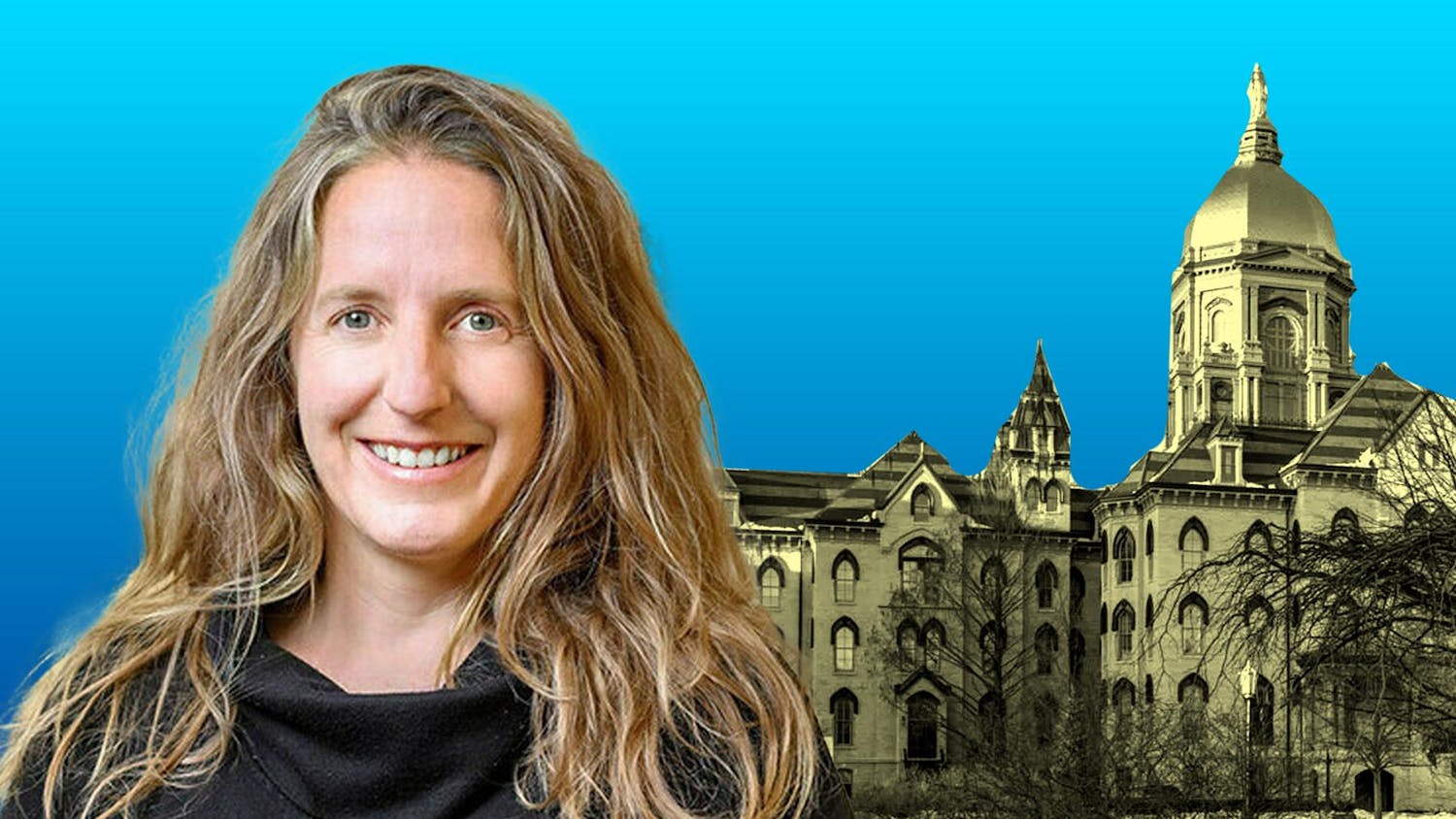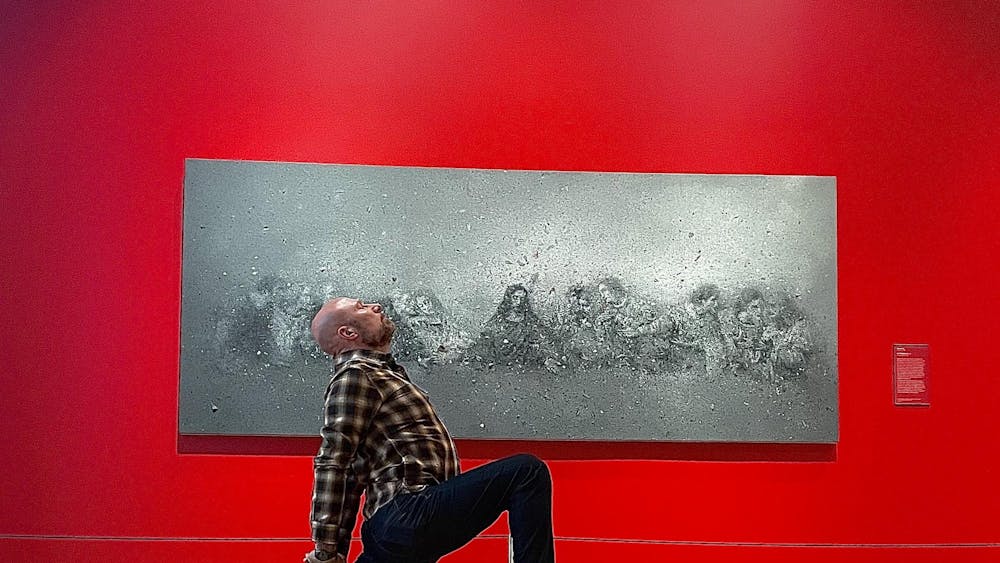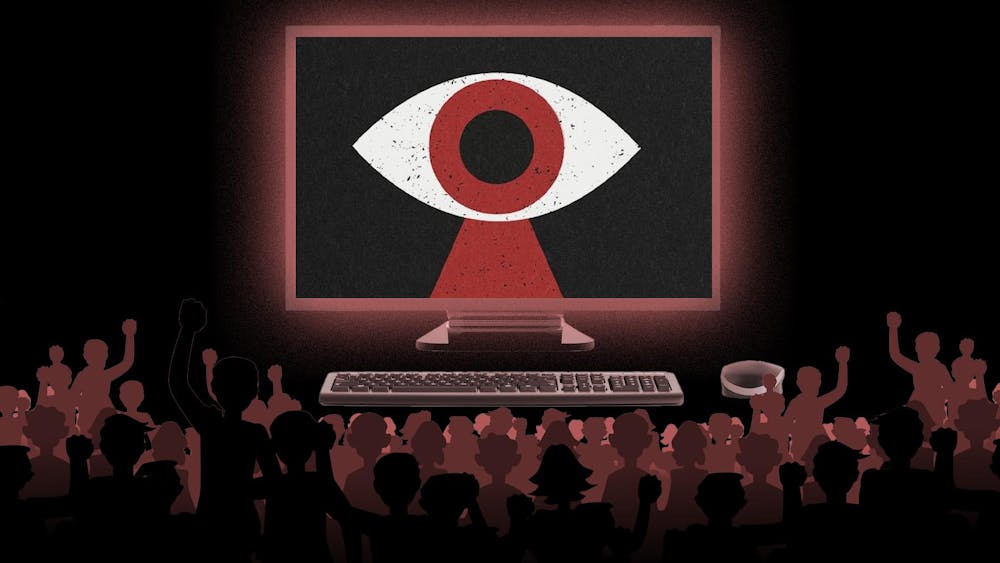This weekend marked the one-year anniversary of the death of University President Emeritus Fr. Theodore Hesburgh, Notre Dame’s longest-tenured president. As a method of commemoration, the Knights of Columbus opted to hold a “Poker Smoker” event that was exactly what it sounded like — a night of card playing followed by the smoking of cigars. Proceeds from the Knights event went to Hesburgh Hospital in Ecuador. Knott Hall hosted a similar “tribute” event that also incorporated cigars. Both events were promoted as “a great way to honor a great man.” The Week@ND contained a description of the Knights event with a clickable link to purchase a ticket.
I can certainly applaud the idea of commemorating the legacy of Father Ted, a man who gave so much of himself to others, through a charity. But it is irresponsible of both Knott Hall and the Knights of Columbus to promote the consumption of tobacco products. Cigar smoking in particular causes cancer of the lung, lip, tongue, mouth, throat, esophagus, pancreas and larynx. Cigar smoke has higher concentrations of carcinogens and tar than cigarette smoke. Nicotine is an addictive drug that induces physical dependency in its users. Combined, tobacco kills 50 percent of its users, accounting for approximately six million deaths (equivalent to the entire membership of the Knights of Columbus) every year.
Certainly, both these organizations are entitled to host these events; they have broken no campus laws. Yet such an event must be considered a betrayal of their founding principles. Clearly, such an event does speak to the Knights’ belief in “charity” and “unity,” and perhaps “fraternity” in a “hold my beer and watch this” sort of way. However, a true understanding of fraternity involves a concern for the well-being of one’s brothers; providing them with addictive drugs is no way to demonstrate this. Similarly, any residence hall must put the health and welfare of its students at a very high level of priority — encouraging them to engage in disproportionately dangerous behavior is the exact opposite of such ideals. Moreover, the University states it is deeply interested in convincing students to make healthy choices, hence the much-beloved “Contemporary Topics” course that was once a freshman requirement but has since been rolled into The Moreau First-Year Experience. Yet, the University still chooses to promote such an event, even when it was certainly not obligated to do so. The University, for instance, did not promote the “die-in” memorial to Eric Garner in December 2014 via The Week@ND.
Nor should we excuse this form of tribute to the great legacy of Father Ted merely because the man himself was known “to enjoy the occasional cigar.” Father Hesburgh was certainly a man of great personal and spiritual insight, and he received many doctorates. Yet among these is absent a doctorate of medicine, and for good reason — he was not medically trained. While we should celebrate the many great things he accomplished, we should not repeat Father Ted’s mistakes. To do so is disrespectful in and of itself.
Was there no other method of raising money to support Hesburgh Hospital than by selling tobacco? Would not a prize offered by the Knights for victory in the poker tournament have had equal motivating effect on donors? Perhaps not. But as the memorialization of Father Hesburgh through cigar smoking is increasingly appearing to be an annual event, the Notre Dame community is confronted with a challenge. Do we respect, and yet avoid, the mistakes of our greatest patriarch? Or do we ignore them and bear the consequences as the health of our campus goes up in smoke?
Not just a cigar
The views expressed in this column are those of the author and not necessarily those of The Observer.









